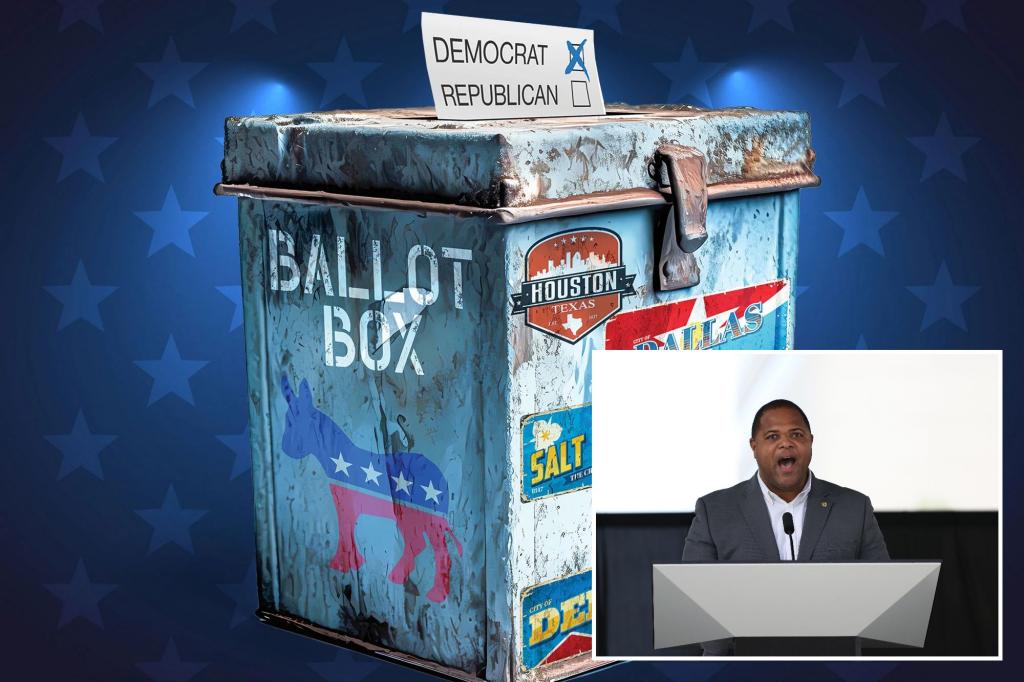“We must be active at the local level!” That’s what it says on the homepage of the Dallas County Republican Party, which nominated as its candidate to run against Democratic incumbent Dallas mayor Eric Johnson in the recent May 6 election . . . nobody.
In the third-largest city in Texas, the ninth-largest in the US, the mayor has just been reelected, unopposed.
Mayor Johnson may seem like a decent guy, but even the most partisan Democrat would find it hard to believe that he deserves to run sans rival.
The election was notionally nonpartisan, but the lack of a competitive mayoral contest says something about the civic health of Dallas.
Texas’s largest city, Houston, is also electing a mayor this year, in November.
There’s a gaggle of candidates — but there is no Republican.
It has been a while since Republicans were competitive in Houston, but now they’ve apparently decided to stop competing at all.

And where Republicans can recruit mayoral candidates, they aren’t attracting the best.
Take San Antonio, where a mayoral race also took place last week.
Those looking for an alternative to progressive orthodoxy had the option of “real Texas constitutional conservative” Gary Allen, a talk-radio-style dork who inanely claimed, “We are in time that people’s constitutional liberties are being take away.”
He finished with 6% of the vote — and was lucky to have it.

Over in Fort Worth, the moderate Republican mayor Mattie Parker was reelected with 69% of the vote, once again making her city not only the biggest in Texas with a Republican mayor but the second-largest in the country, behind Jacksonville, Fla.
The tiny list of large(-ish) cities with Republican mayors includes Oklahoma City, Omaha, and Miami.
The largest in California is Fresno; in Arizona it’s Mesa.
There is no Republican-led US city with a population of 1 million or more.
Dallas is not alone in having progressive mayors run unopposed — the same thing happened in Erie, Pa., in 2021, when the incumbent Democrat Joe Schember took advantage of the fact that there were no names on the Republican primary ballot to secure both the GOP and Democratic nominations.
In Chicago, the most conservative candidate in the recent mayor’s race was Paul Vallas, a creature of the public-education bureaucracy and politically closer to Eric Adams than to Michael Bloomberg.
The Democratic mayor of Montgomery, Ala., is running without an opponent as of this writing.
Two Democrats are fighting it out in the (officially nonpartisan) Denver mayoral election.
Lincoln, Neb., hasn’t had a Republican mayor in this century.
In Salt Lake City, the upcoming mayor’s race will pit the Democratic incumbent against a left-wing splinter-party challenger and an even-more-left-wing challenger running under an assumed name.

Nobody expects Republicans to perform heroically in Connecticut or New Jersey — but they aren’t even in the mix in Texas and Utah.
I am no admirer of what the Republican Party has become in the Age of Trump.
The important question is not whether the GOP can undo its decline in the cities and inner suburbs (which increasingly resemble the cities themselves socially and politically) but whether urban voters are going to have any real choice when it comes to policy and governance.
It’s clear that urban voters do not want what Republicans are selling; it’s just as clear that what Democrats are selling has failed them.
Take Dallas, where I live.

It isn’t the post-apocalyptic hellscape of Republican rhetoric — there is a reason the Dallas-Fort Worth metro has been the fastest-growing in the country.
But there also is a reason much of that growth is not in the city of Dallas, but separately incorporated enclaves such as Highland Park.
Compare Dallas to New York City: Dallas has a murder rate that is almost four times as high; Dallas has the kind of open prostitution that disappeared from Times Square a generation ago; Dallas’s 11% high-school dropout rate is substantially higher than New York’s; in Dallas we pay a higher property tax rate than in Manhattan or Brooklyn, and housing is getting more expensive in Dallas even faster than down in fashionable Austin.
It would be silly to blame the mayor — but none of it argues for his being reelected by acclamation, either.
One-party rule is bad for everyone — resulting in dysfunction, complacency, and corruption.
Conservatives have some useful policies to offer city-center voters: Getting control of urban chaos during the Giuliani years enabled New York’s broader turnaround; loosening up public education cartels has provided positive results in cities as different as New Orleans and Denver; Philadelphia’s Center City enjoyed a long renaissance driven in great part by Ed Rendell’s tax incentives, which were right out of the Jack Kemp playbook.
Urbanites need real political choices in order to pursue intelligent reforms — and cities need real political competition to create incentives for policy innovation.
That competition does not necessarily have to come from the GOP, but it has to come from somewhere.
Kevin D. Williamson is a writer in residence for the Competitive Enterprise Institute and national correspondent for The Dispatch.
𝗖𝗿𝗲𝗱𝗶𝘁𝘀, 𝗖𝗼𝗽𝘆𝗿𝗶𝗴𝗵𝘁 & 𝗖𝗼𝘂𝗿𝘁𝗲𝘀𝘆: nypost.com
𝗙𝗼𝗿 𝗮𝗻𝘆 𝗰𝗼𝗺𝗽𝗹𝗮𝗶𝗻𝘁𝘀 𝗿𝗲𝗴𝗮𝗿𝗱𝗶𝗻𝗴 𝗗𝗠𝗖𝗔,
𝗣𝗹𝗲𝗮𝘀𝗲 𝘀𝗲𝗻𝗱 𝘂𝘀 𝗮𝗻 𝗲𝗺𝗮𝗶𝗹 𝗮𝘁 dmca@enspirers.com


